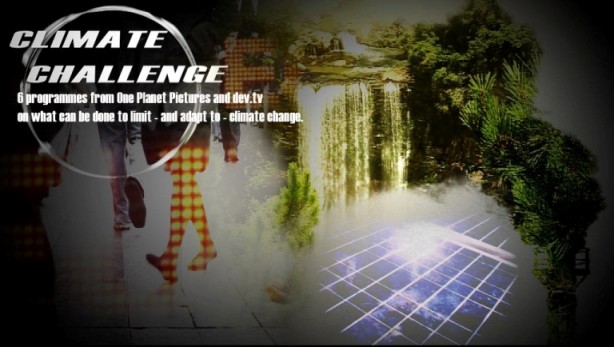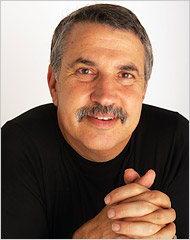Climate Challenge is a new, weekly, 6-part series coproduced by our Geneva-based partner
dev.tv and UK partner, One Planet Pictures. It begins broadcasting on BBC World from Wednesday, 4 April 2007.
The series goes local and global to find here-and-now answers to climate change. It makes the point: in the fight against global warming, developed and developing countries must work hand-in-hand to find viable solutions for all.
Here’s the blurb from One Planet Pictures website:
So it’s official. Even President Bush in his latest State of the Union Report has acknowledged that global warming is happening. The scientists of the UN’s Intergovernmental Panel on Climate Change say that only swingeing cuts in the release of greenhouse gases can save our planet from becoming a Venusian hothouse.
But how can that be achieved when even the modest Kyoto targets are not being met by most rich countries? And when the world’s most populous countries are expanding their energy requirements at an unprecedented rate? What can be done to head off a catastrophe?
In Climate Challenge, One Planet Pictures’ film-makers focus on some of the most promising approaches to turning down the global thermostat. Climate Challenge goes local and global in search for solutions that won’t put a break on economic growth
The series will be distributed by TVE Asia Pacific after its initial run on BBC World.
For broadcast times, see dev.tv website or checkout BBC World programme schedule
BBC World is the commercially-operated international broadcasting arm of the BBC.

